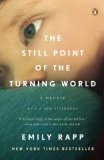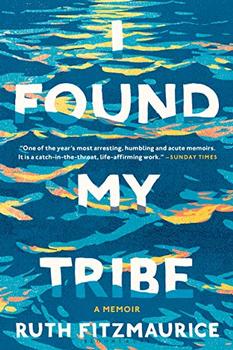Summary | Excerpt | Reviews | Beyond the book | Read-Alikes | Genres & Themes | Author Bio

The Still Point of the Turning World is the story of a mother's journey through grief and beyond it, re-examining our most fundamental assumptions about what it means to be a good parent, to be a success, and to live a meaningful life.
Like all mothers, Emily Rapp had ambitious plans for her first and only child, Ronan. He would be smart, loyal, physically fearless, and level-headed, but fun. He would be good at crossword puzzles like his father. He would be an avid skier like his mother. Rapp would speak to him in foreign languages and give him the best education.
But all of these plans changed when Ronan was diagnosed at nine months old with Tay-Sachs disease, a rare and always-fatal degenerative disorder. Ronan was not expected to live beyond the age of three; he would be permanently stalled at a developmental level of six months. Rapp and her husband were forced to re-evaluate everything they thought they knew about parenting. They would have to learn to live with their child in the moment; to find happiness in the midst of sorrow; to parent without a future.
The Still Point of the Turning World is the story of a mother's journey through grief and beyond it. Rapp's response to her son's diagnosis was a belief that she needed to "make my world big" - to make sense of her family's situation through art, literature, philosophy, theology and myth. Drawing on a broad range of thinkers and writers, from C.S. Lewis to Sylvia Plath, Hegel to Mary Shelley's Frankenstein, Rapp learns what wisdom there is to be gained from parenting a terminally ill child. In luminous, exquisitely moving prose she re-examines our most fundamental assumptions about what it means to be a good parent, to be a success, and to live a meaningful life.
In The Still Point of the Turning World Emily Rapp examines her son's all-too-brief life - and her own reactions to it - fearlessly and with an honesty that will devastate and astonish not only other parents, but everyone who opens this remarkable book...continued
Full Review
(830 words)
This review is available to non-members for a limited time. For full access,
become a member today.
(Reviewed by Norah Piehl).
At the age of nine months, Emily Rapp's son Ronan was diagnosed with a deadly disease called Tay-Sachs. The disease is caused by the lack of a vital enzyme called hexosaminidase-A (Hex-A); the result is a progressive buildup of a fatty substance in nerve cells that causes destructive neurological decline and eventually death. There is no cure. A baby with Tay-Sachs can appear "normal" up until six months, although the disease is present even in the fetal stage; at that half year point, however, any developmental progress begins to decline, and the child who could once crawl or babble is eventually unable to see, move, or even hold his or her head upright.
 Tay-Sachs is a genetic disease, named for Warren Tay, a British opthamologist ...
Tay-Sachs is a genetic disease, named for Warren Tay, a British opthamologist ...
This "beyond the book" feature is available to non-members for a limited time. Join today for full access.

If you liked The Still Point of the Turning World, try these:

by Allison Pataki
Published 2019
A deeply moving memoir about a young couple whose lives were changed in the blink of an eye, and the love that helped them rewrite their future.

by Ruth Fitzmaurice
Published 2019
A transformative, euphoric memoir about finding solace in the unexpected for readers of H is for Hawk and When Breath Becomes Air.